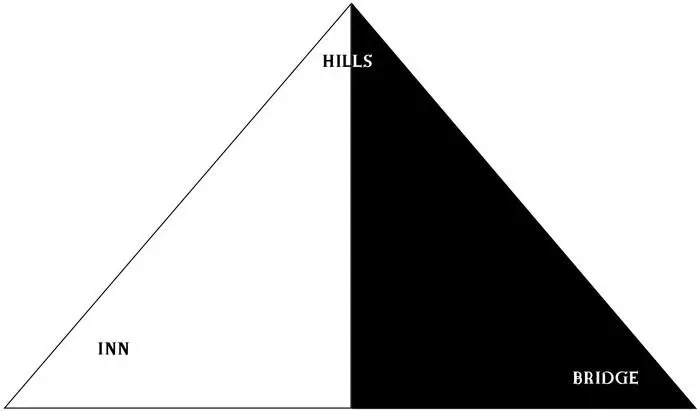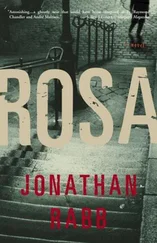Jonathan Rabb - The Book of Q
Здесь есть возможность читать онлайн «Jonathan Rabb - The Book of Q» весь текст электронной книги совершенно бесплатно (целиком полную версию без сокращений). В некоторых случаях можно слушать аудио, скачать через торрент в формате fb2 и присутствует краткое содержание. Жанр: Триллер, на английском языке. Описание произведения, (предисловие) а так же отзывы посетителей доступны на портале библиотеки ЛибКат.
- Название:The Book of Q
- Автор:
- Жанр:
- Год:неизвестен
- ISBN:нет данных
- Рейтинг книги:5 / 5. Голосов: 1
-
Избранное:Добавить в избранное
- Отзывы:
-
Ваша оценка:
- 100
- 1
- 2
- 3
- 4
- 5
The Book of Q: краткое содержание, описание и аннотация
Предлагаем к чтению аннотацию, описание, краткое содержание или предисловие (зависит от того, что написал сам автор книги «The Book of Q»). Если вы не нашли необходимую информацию о книге — напишите в комментариях, мы постараемся отыскать её.
The Book of Q — читать онлайн бесплатно полную книгу (весь текст) целиком
Ниже представлен текст книги, разбитый по страницам. Система сохранения места последней прочитанной страницы, позволяет с удобством читать онлайн бесплатно книгу «The Book of Q», без необходимости каждый раз заново искать на чём Вы остановились. Поставьте закладку, и сможете в любой момент перейти на страницу, на которой закончили чтение.
Интервал:
Закладка:
The last line of each set held the ultimate key. Esau on the lower right became the “noble bridge.” Wisdom on the middle left opened “the inn.” And Gnosis up top defined “the hills.” Three landmarks within Visegrad. Three points of a triangle.

Even without reading the last set, Pearse knew exactly where the “Hodoporia” lay hidden on the map. Where else could it be but with Mani at its center? The treasure revealed in “the enlightener.”
His disciple? The one to solve the mystery.
Like all good Manichaeans, Ribadeneyra had chosen his landmarks well. The bridge, though bombed in the recent war, remained roughly intact. The hills were the hills. The only question was, Where was the inn? Without that third point in the triangle, it would be impossible to locate the center.
“Where can I find an old map of Visegrad?” he asked, tracing the triangle from Ivo’s book onto a separate sheet.
“How old?” Petra asked.
“Sixteenth, seventeenth century.”
She watched him as he continued to draw. “Now where did I leave my sixteenth-, seventeenth-century map of Visegrad?”
Not bothering to look up, he said, “I’m serious.”
“A four-hundred-year-old map? I have no idea. Maybe at the city hall. Why?”
“Because I need to know where something called ‘the inn’ would have been in 1521.”
“At the entry to the old marketplace,” she said matter-of-factly.
“Where the road to Mejdan starts to climb.”
“I said I’m serious.”
“So am I.”
Now, he looked up.
“I promise,” she said.
“How do you know where-”
“Because anyone who grew up in this part of the world knows the story of the old inn. It’s one of the first things you learn in school.”
“In school?”
She turned to Ivo and began to sing: “‘The boy from the hills, when he grew to a man-’”
“‘Was known to the world as the Grand Mehmed Pasha,’” Ivo continued with a wide smile. “‘He gave us the bridge near the mighty Stone Han, from Rade the Mason of the great Turkish Empire.’”
Pearse stared at both of them. “What are you talking about?”
Ivo giggled; Petra smiled. She sang again: “‘So went the wood and the hay and stables, the inn tumbled down by the Grand Mehmed Pasha.’”
“‘Say good-bye to the wood and the hay and the stables,’” sang Ivo. “‘Make way for the Han of the Grand Mehmed Pasha.’”
“The Grand who?” Pearse asked.
“Mehmed Pasha of Sokolovici,” she said in her best kindergarten-teacher voice. “He was one of Suleiman’s viziers.” When she saw no change in Pearse’s expression, she said, “A local boy who made good. Around 1570, he decided he wanted to bring civilization to Bosnia, so he built the bridge, and, with it, the Stone Han-‘the great caravanserai.’ Hence the song.”
“And what does that have to do with the inn?”
“The inn stood on the spot where they built the Stone Han,” she explained.
Pearse began to nod slowly. “But first he tore down the wood and the hay-”
“‘Tumbled down,’” said Ivo.
“Right. ‘Tumbled down.’ Sorry, Ivi.” He waited for a nod. He then turned back to Petra. “And the old inn would have been there fifty years before this pasha decided to be so magnanimous?”
“Well, no one’s really sure when the old inn was built,” she said, “but the legend goes back to at least the early 1400s. That’s why it was such a big deal when he ‘tumbled it down.’”
“So anyone who came through Visegrad, say in 1521, would have known about the old inn?”
“Absolutely.”
Pearse thought to himself for a moment. “Would you be able to pick out the spot where the old inn would have been on a current map of the city?”
“Sure.”
He handed her the pages, the book, and the pack.
Half a minute later, they were on the road to Visegrad.
There was something distinctly non-Vatican about the rooms buried under the library, a coldness in gray steel to repel even a spiritual fire. Peretti had never been to the Gabbia before, the place an odd mixture of 1950s nuclear-provisioned and 1990s high-tech-obsessed. Doors several feet thick separated one room from the next, each fitted with an air-lock device, what he could only describe as an iron steering wheel wedged in at the center. They were archaic contrivances, however, when compared to the electronic gizmos that lined the walls, the oncespacious bunker now turned into very cramped quarters. Living areas had become computer rooms, open-atria communications centers.
A base from which to maintain the faith, even in the face of Cold War annihilation.
The only space that retained any link with the city above was the chapel, two stories high, squeezed in at the back of the complex: marble panels camouflaged the steel walls and floors; the flicker of chandeliers replaced the hum of fluorescent lights; paintings hung above the altar-Peretti recognized a Filippo Lippi-a gentle reminder of what they were here to protect; and, along the nave, twin rows of richly grained pews extended to the back wall.
All of them empty save for the nine shaken cardinals sitting alone in silent prayer.
Peretti glanced at the bent figures. They were, for the most part, i vecchii, “the old ones,” cardinals beyond eighty, who no longer voted in the conclave but whose spiritual presence remained essential. It was their age that had saved them, too slow to get back to the Sanctae Marthae in time for the explosions. Little consolation in that. The oldest was Virgilio Cardinal Dezza, long ago Archbishop of Ferrara, a tiny rail of a man with a full head of white hair. Peretti had talked with him just this morning, nothing about the vote (of course), but about the beauty of the Sistine. Dezza had admitted he had always had a certain soft spot for the pagan sibyls on the ceiling-a thought that perhaps Michelangelo had painted them with a little more care, just to get a jab in at old Julius II. It had made him laugh; Peretti had laughed, as well.
Now, Dezza seemed a broken man.
Peretti dipped his fingers in the holy water, crossed himself, and knelt in the aisle. He then made his way to Dezza’s side. The old man’s eyes were closed. Peretti closed his as well and began to pray.
When he opened them, Dezza was looking up at him, a pained smile on his lips.
“Peretti.” He placed a hand on his knee. “You weren’t …” He couldn’t bring himself to finish the thought. “Thanks be to God. It’s a terrible thing. Terrible.”
Peretti nodded.
“And the rest of it,” the old man continued. “Is it a sign? Hail and fire, mixed with blood, falling to the earth. Is He coming?”
Dezza had reached that point in life where tragedy could be understood only as omen. Not unusual for men so long devoted to the church. “Terrorists, Eminence,” Peretti said. He had known Dezza for too many years-first as bishop, then as cardinal-not to call him by anything but his title. “They were bound to find their way into the Vatican at some point.”
The old man looked at him. “But it isn’t just here, Giacomo. It isn’t just the Vatican, is it?”
Peretti wasn’t sure what to make of the expression-a genuine terror or a hint of senility-peering up at him. “The church is strong,” he said. “There are others who will take their places.”
Confusion crossed the old man’s face. “Take their places?” he said. “Even if they’re rebuilt, who will have the courage to step inside one?”
Peretti stared at him for several seconds. “What are you talking about, Eminence?”
Читать дальшеИнтервал:
Закладка:
Похожие книги на «The Book of Q»
Представляем Вашему вниманию похожие книги на «The Book of Q» списком для выбора. Мы отобрали схожую по названию и смыслу литературу в надежде предоставить читателям больше вариантов отыскать новые, интересные, ещё непрочитанные произведения.
Обсуждение, отзывы о книге «The Book of Q» и просто собственные мнения читателей. Оставьте ваши комментарии, напишите, что Вы думаете о произведении, его смысле или главных героях. Укажите что конкретно понравилось, а что нет, и почему Вы так считаете.










